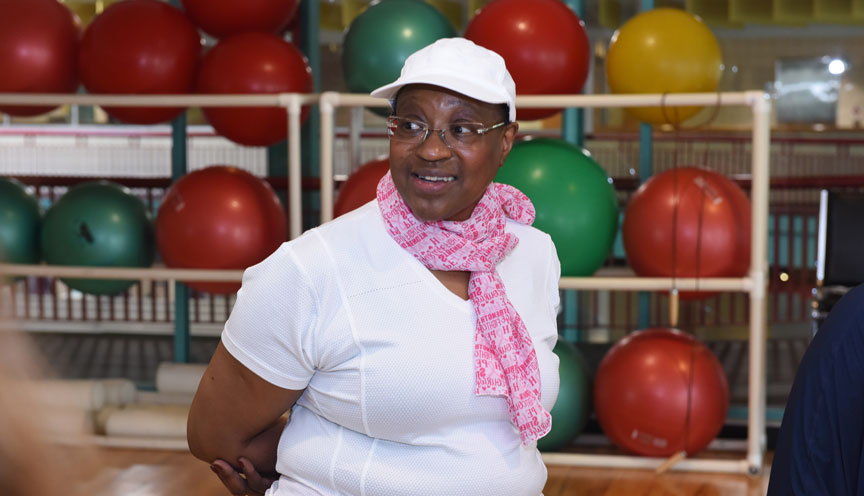Join ExCITE
Learn how the ExCITE program can improve your physical and mental health during and after cancer treatment, from those who have been there.
Many people consider exercise to be an extra burden when they’re fighting fatigue, pain or depression. That’s understandable. Yet research at Henry Ford has shown that exercise can help fight tiredness and reduce some of the side effects of treatment.
Eleanor Walker, M.D., radiation oncologist and medical director for Henry Ford’s Center for Integrative Medicine, worked with cardiologists to create the Exercise and Cancer Integrative Therapy Education (ExCITE) Program.
 The ExCITE Program with Preventive Cardiology provides individualized exercise programs for any cancer patient or survivor, and it has been shown to offer several benefits:
The ExCITE Program with Preventive Cardiology provides individualized exercise programs for any cancer patient or survivor, and it has been shown to offer several benefits:
Still, some people wonder if it’s better to rest while recovering. “I tell patients to rest and exercise,” Dr. Walker says. “Most people can immediately start exercising by walking around the house.”
Do something physical that made you happy in the past, whether that’s dancing, biking, gardening or yoga.
“When you’re happy, you’re triggering endorphins, and you tend to do things more often,” says Dr. Walker, who enjoys salsa dancing. If you need a partner for dance or exercise, consider your caregiver.
Exercise 15 minutes a day, for six days each week.
You’ll tally up the recommended 90 minutes of weekly cardio exercise. “Just increase your heart rate and break a little sweat,” Dr. Walker says. “Be patient. You should notice improvements in two or three weeks.”
Don’t forget about deep breathing, listening to music and sitting in the sun. Before starting any exercise program, talk to your doctor.
Learn how the ExCITE program can improve your physical and mental health during and after cancer treatment, from those who have been there.

We use cookies to improve your website experience. By using this site, you agree to our Terms of Use. Read our Internet Privacy Statement to learn what information we collect and how we use it.